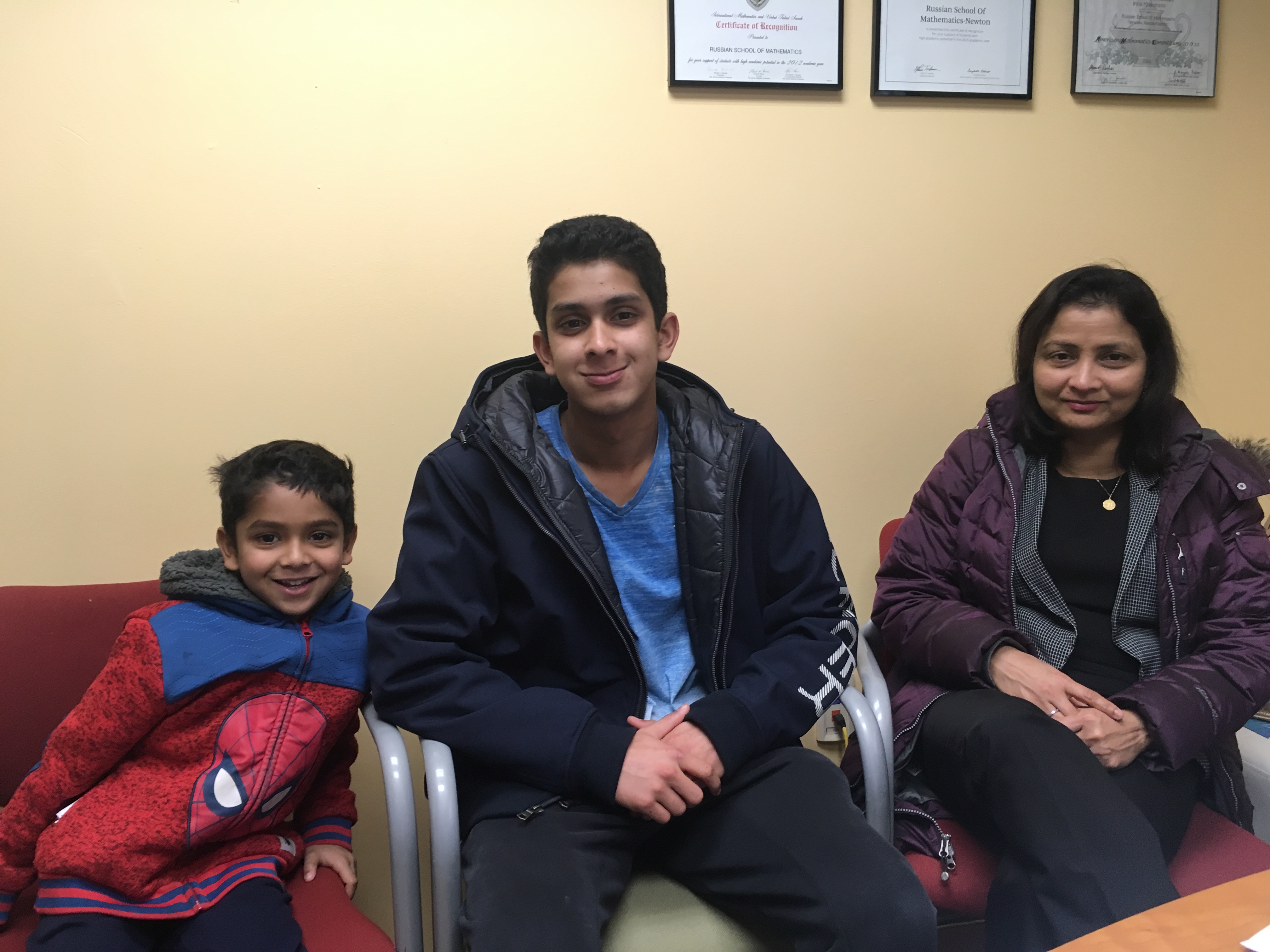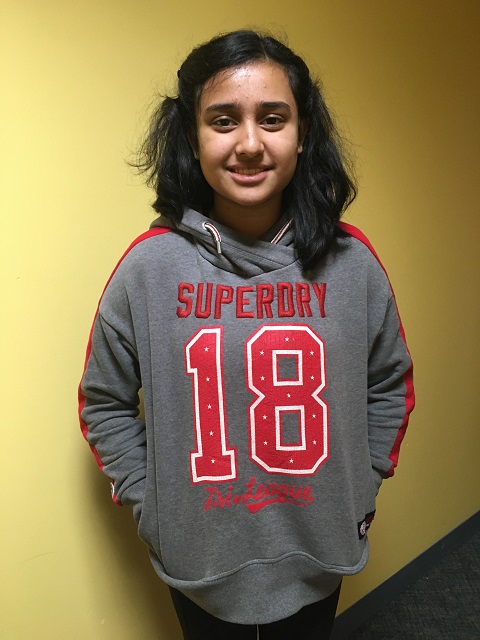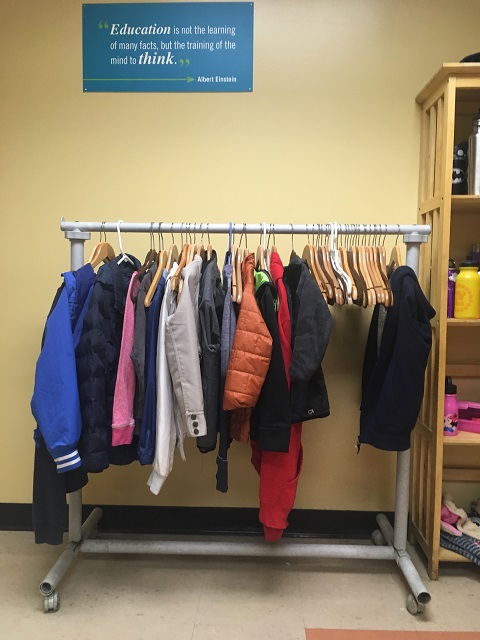
Sachin and Rohan Prabhu, both students at the Russian School of Mathematics in Newton, Massachusetts, with their mother Malini Prabhu. Photo Credit: Elizabeth Ross
*This piece was originally published on January 18th, 2019*
The U.S. does not fare well in math when compared with other industrialized nations, as demonstrated by international tests like the PISA. So, for parents who want to help their students get ahead in math and can afford it, after-school programs that focus deeply on the subject have become attractive.
There are plenty of extracurricular math programs around, but one run by the Russian School of Mathematics (RSM) for students from kindergarten through 12th grade, is particularly popular, serving over 30,000 students around the country. (Innovation Hub senior producer, Elizabeth Ross, visited the program’s headquarters in Newton, Massachusetts and found a lot of enthusiastic students and parents, as you’ll hear in our report.)

Riya Mishra, a student at the Russian School of Mathematics in Newton, Massachusetts
Masha Gershman, the director of outreach at the Russian School of Mathematics and the daughter of one of its co-founders, says that the former Soviet Union’s method of math instruction has a lot to teach American kids, particularly when it comes to higher-level and conceptual learning.
But Jon Star, a professor at the Harvard Graduate School of Education, argues that many American parents - especially those in affluent suburbs where such extracurricular programs are popular - should ask themselves why they’re enrolling their kids in after-school math. It probably shouldn’t just be to get ahead in school - or to keep up with the neighbors. It should have to do with an intrinsic love of the subject.

A sign posted on the wall at the Russian School of Mathematics in Newton, Massachusetts.
Three Takeaways:
- According to Masha Gershman, the Russian approach to math has historically focused on using the subject as a tool to develop the mind and to encourage mental empowerment and abstract thinking. She says the former Soviet Union tapped its top academic minds during the Space Race to enhance math education.
- The Russian School of Mathematics has grown significantly since it was founded by Gershman’s mother, Inessa Rifkin, and educator Irina Khavinson over 20 years ago. RSM now has 48 branches.
- Jon Star encourages parents to look for programs that spark students’ curiosity about math, and don’t necessarily preview material that they will learn in school.
Listener Feedback:
After we aired this segment, we got a lot of feedback from you.
Via Twitter, Blair Blanks said: “I wish there were more affordable options for math enrichment. My 8yr old girl loves math, but the school discontinued math enrichment.”
She points out that the Johns Hopkins Center for Talented Youth that her daughter qualifies for is costly.
Carolyn Landel, the managing director of the Dana Center at the University of Texas and an expert on math and science education, says that - while getting ahead in math has come a goal in many affluent suburbs - community colleges around the country are seeing kids fall behind in math.
She says that more than 60 percent of students can’t qualify for entry-level college math in our community college system. It’s the number one subject area stopping students from getting a degree.
Take a listen to both of their perspectives below. And remember, we’d love to hear from you.
Drop us a line at innovationhub@wgbh.org or get at us on Twitter: @IhubRadio. Or give us a call at 617-684-5839 - we might play your voice on the radio!
More Reading:
- The Atlantic reports on American students who are excelling at advanced math.
- Barbara Oakley, an engineering professor,explains why it is important for girls to practice math as much as possible.
- A broader look at after-school math programs, by The Boston Globe Magazine.

